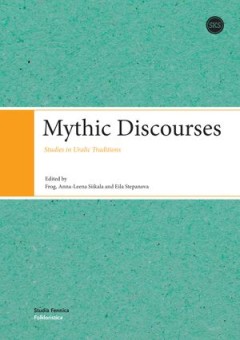Filter by

Hogwild: A Back-to-the-Land Saga
In Hogwild: A Back-to-the-Land Saga, readers learn that the term “Hogwild” was an outrageous ideology—that a loosely organized confederation of like-minded individuals could carve out a simple country lifestyle from an enclave of mountain land, raise their own crops, bring up their children in peace and serenity, and build their own free-spirited houses with logs timbered from the local f…
- Edition
- -
- ISBN/ISSN
- 9781469638508
- Collation
- -
- Series Title
- -
- Call Number
- 300 LAU h

Biopolitics and Historic Justice : Coming to Terms with the Injuries of Norma…
Human rights violations linked to norms of health, fitness, and social usefulness have long been overlooked by Historic Justice Studies. Kathrin Braun introduces the concept of »injuries of normality« to capture the specifics of this type of human rights violation and the respective struggles for historic justice. She examines the processes of Vergangenheitsbewältigung in the context of coer…
- Edition
- -
- ISBN/ISSN
- 9783732845507
- Collation
- -
- Series Title
- -
- Call Number
- 361.614 BRA b

Gender and Sustainability :Lessons from Asia and Latin America
This is one of the first books to address how gender plays a role in helping to achieve the sustainable use of natural resources. The contributions collected here deal with the struggles of women and men to negotiate such forces as global environmental change, economic development pressures, discrimination and stereotyping about the roles of women and men, and diminishing access to natural reso…
- Edition
- -
- ISBN/ISSN
- 9780816537952
- Collation
- -
- Series Title
- -
- Call Number
- 300

Defending Women's Rights in Europe :Gender Equality and EU Enlargement
Between 2004 and 2007, ten post-communist Eastern European states became members of the European Union (EU). To do so, these nations had to meet certain EU accession requirements, including antidiscrimination reforms. While attaining EU membership was an incredible achievement, many scholars and experts doubted the sustainability of accession-linked reforms. Would these nations comply with EU d…
- Edition
- -
- ISBN/ISSN
- 9781438455914
- Collation
- -
- Series Title
- -
- Call Number
- 300

Cultivating Knowledge Biotechnology, Sustainability, and the Human Cost of Co…
A single seed is more than just the promise of a plant. In rural south India, seeds represent diverging paths toward a sustainable livelihood. Development programs and global agribusiness promote genetically modified seeds and organic certification as a path toward more sustainable cotton production, but these solutions mask a complex web of economic, social, political, and ecological issues th…
- Edition
- -
- ISBN/ISSN
- 9780816540259
- Collation
- -
- Series Title
- -
- Call Number
- 300

The Examined Life: Family, Community, Work in American Literature
Concerned with the 50% dropout rate for public high school students in the Southern Highlands, Jim Wayne Miller published this book in 1989 to ensure that young people had access to published works and other text that examine the themes of familiy, community, and work. Miller intended to provide public school teachers with the tools to engage students and stimulate meaningful conversations. Mil…
- Edition
- -
- ISBN/ISSN
- 9781469642383
- Collation
- -
- Series Title
- -
- Call Number
- 306.4 MIL e

Connecting Continents: Archaeology and History in the Indian Ocean World
In recent decades, the vast and culturally diverse Indian Ocean region has increasingly attracted the attention of anthropologists, historians, political scientists, sociologists, and other researchers. Largely missing from this growing body of scholarship, however, are significant contributions by archaeologists and consciously interdisciplinary approaches to studying the region’s past and p…
- Edition
- -
- ISBN/ISSN
- 9780821446409
- Collation
- -
- Series Title
- -
- Call Number
- 300

American Dolorologies :Pain, Sentimentalism, Biopolitics
American Dolorologies presents a theoretically sophisticated intervention into contemporary equations of subjectivity with trauma. Simon Strick argues against a universalism of pain and instead foregrounds the intimate relations of bodily affect with racial and gender politics. In concise and original readings of medical debates, abolitionist photography, Enlightenment philosophy, and contempor…
- Edition
- -
- ISBN/ISSN
- 9781438450216
- Collation
- -
- Series Title
- -
- Call Number
- 300

Paul Green's Wordbook: An Alphabet of Reminiscence
Paul Green’s Wordbook: An Alphabet of Reminiscence, the culmination of more than sixty years of observing and collecting superstitions, customs, cures, riddles, games, stories, songs, and beliefs, was published in 1990. A personal collection of folk traditions, Paul Green thought that these common idioms served to showcase the heritage of mankind. With roots in eastern North Carolina, Green t…
- Edition
- -
- ISBN/ISSN
- 9781469638386
- Collation
- -
- Series Title
- -
- Call Number
- 306.4 GRE p

Mythic Discourses
Mythic discourses in the present day show how vernacular heritage continues to function and be valuable through emergent interpretations and revaluations. At the same time, continuities in mythic images, motifs, myths and genres reveal the longue durée of mythologies and their transformations. The eighteen articles of Mythic Discourses address the many facets of myth in Uralic cultures, from t…
- Edition
- -
- ISBN/ISSN
- 9789522227638
- Collation
- -
- Series Title
- -
- Call Number
- 398.2 STE m
 Computer Science, Information & General Works
Computer Science, Information & General Works  Philosophy & Psychology
Philosophy & Psychology  Religion
Religion  Social Sciences
Social Sciences  Language
Language  Pure Science
Pure Science  Applied Sciences
Applied Sciences  Art & Recreation
Art & Recreation  Literature
Literature  History & Geography
History & Geography